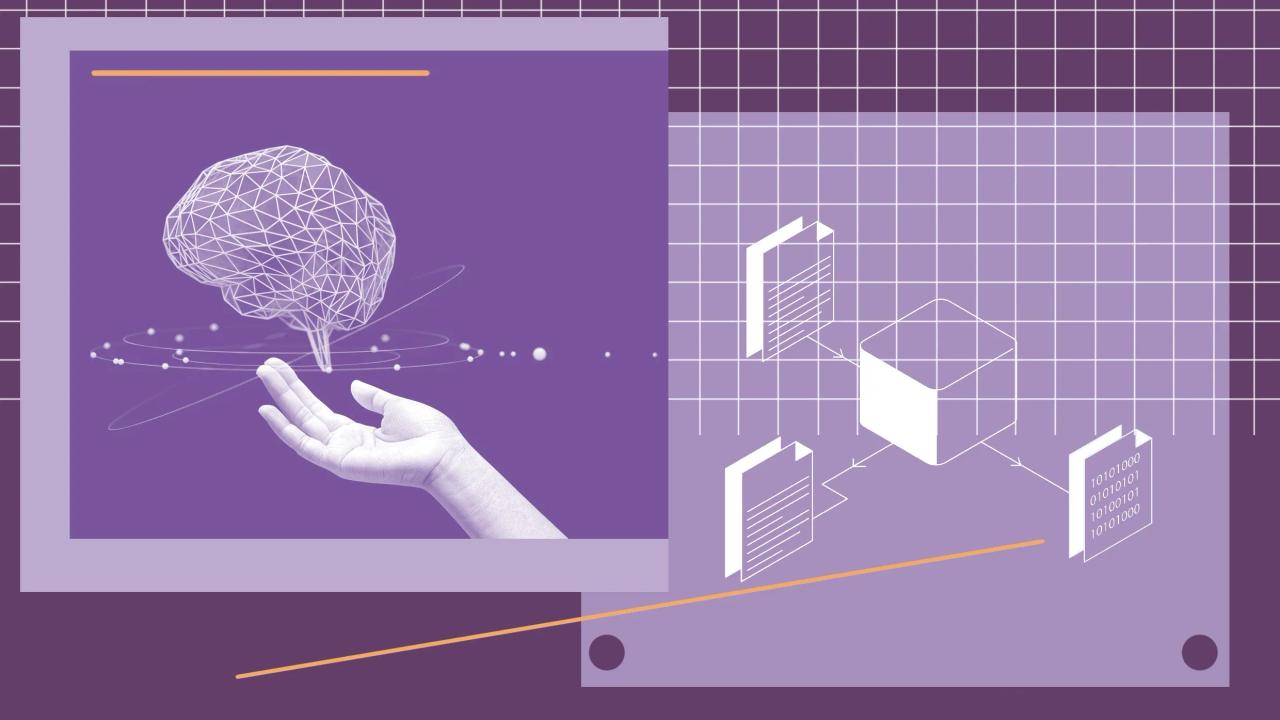AI Innovations Transforming Enterprise Technology and Data Management in 2024
2 Sources
2 Sources
[1]
The 6 next big things in enterprise technology for 2024
Some of the AI tools with the greatest impact to perform useful work don't go out of their way to call attention to themselves. These companies are applying the technology to jobs such as streamlining business processes, improving customer support experiences, and even making video meetings feel a little more natural. aiOla For giving voice to jargon-filled paperwork Frontline workers such as forklift drivers often wrestle with paper forms as part of their everyday tasks. aiOla replaces paper -- and even tablet-based input -- with a voice-driven interface that lets workers talk rather than writing or typing. To accomplish that, its Jargonic technology can scan existing paper or digital forms and understand their purpose, including industry-specific terms. The company says its AI has achieved 95% accuracy for jargon-filled voice recognition. Antithesis For killing bugs dead Buggy software is always annoying. In worst-case scenarios, its's dangerous. Antithesis's technology automatically and continuously scans code for flaws in an isolated testing environment where the bugs can do no harm to real-world operations. After five years of development, the company launched its product in February 2024 and is working with customers such as MongoDB, Palantir, and Ethereum. Intercom For putting AI to work in customer service Intercom's Fin AI Copilot is designed to give service reps quick access to the information they need to resolve issues, so they can focus on the meaningful aspects of customer interactions that only a human can provide. The company says it can increase agent efficiency by 31%, speeding responses by up to 75%. The service works in concert with Fin Agent, an AI chatbot that can field up to 80% of customer questions on its own, helping human reps devote their full attention to thornier issues.
[2]
The 11 next big things in AI and data innovations for 2024
The AI big bang that first caught the world's attention with ChatGPT is sending energy and innovation out in many directions. Large language models aren't just chatting and summarizing text: Now they're also reasoning through problems with increasing autonomy. The text-only models of two years ago have become multi-model -- capable of processing everything from audio and video to computer code and robotic movements. Big companies are deploying AI models and apps in new ways, and AI infrastructure startups are finding no shortage of pain points in that process to address. These companies deserve special attention for pushing these transformations toward real-life advances within business, science, and personal AI. Bellwether For applying AI to extreme weather event response As climate change gives rise to more extreme weather, fires, and floods, the world needs new technologies, including AI, to understand them. Bellwether, which is being incubated at Alphabet's X research lab, uses AI to process and analyze satellite imagery, then provides disaster response teams with the maps and insights they need to best deal with disasters on the ground. Since earth observation data is ever-changing, Bellwether developed advanced simulation techniques to unlock new insights into the effects of natural events on both human-made and natural structures. For example, its tools have been used to predict wildfires as well as to analyze hurricanes or flood zones, so that relief resources can be deployed more quickly. Blackbird.AI For creating a weapon against online misinformation In an online world where bad actors muddy the waters with disinformation to the point where the truth can seem unknowable, netizens and brands need a sane fact-checker at their side. That's what Blackbird.AI has built with Compass, a web app that lets users reality check suspicious claims made in social media posts, videos, links, and memes. When they paste a piece of content into the Compass tool, it checks it against thousands of trustworthy sources and generates an answer accompanied by footnotes and citation links. Businesses can use Compass to locate and counter false narratives about their brands. Databricks For putting powerful AI models where the data lives Enterprises are increasingly using AI models to look for insights within their proprietary data, from documents and video to transcripts of support calls. Hosting and enabling analytics on enterprise data within a single cloud is Databricks' claim to fame. Databricks customers can train its DBRX AI model on their own data to get business-specific answers to questions. For example, a healthcare organization could use the model to look for patterns of disease across thousands of electronic patient records.
Share
Share
Copy Link
A comprehensive look at the most promising AI-driven technologies set to revolutionize enterprise operations, customer service, and data management in 2024, featuring innovations from companies like aiOla, Antithesis, Intercom, Bellwether, Blackbird.AI, and Databricks.

AI-Powered Voice Recognition Revolutionizes Workplace Efficiency
In the rapidly evolving landscape of enterprise technology, aiOla is making significant strides in streamlining workplace processes. The company's innovative Jargonic technology is transforming how frontline workers interact with paperwork, replacing traditional forms with a voice-driven interface. This AI-powered system can comprehend industry-specific jargon with an impressive 95% accuracy, allowing workers like forklift drivers to complete tasks through voice commands rather than writing or typing
1
.Automated Bug Detection Enhances Software Security
Antithesis is tackling the persistent challenge of software bugs with its groundbreaking AI technology. Launched in February 2024 after five years of development, their system continuously scans code for flaws in an isolated testing environment. This proactive approach prevents potential bugs from impacting real-world operations, a crucial feature for maintaining software integrity and safety. The technology has already garnered attention from major players like MongoDB, Palantir, and Ethereum
1
.AI Copilots Elevate Customer Service Experiences
Intercom's Fin AI Copilot is revolutionizing customer service by augmenting human capabilities with artificial intelligence. The system provides service representatives with rapid access to essential information, allowing them to focus on the nuanced aspects of customer interactions that require a human touch. Intercom reports a 31% increase in agent efficiency and up to 75% faster response times. Additionally, their Fin Agent chatbot can independently handle up to 80% of customer inquiries, freeing human agents to address more complex issues
1
.AI-Driven Disaster Response and Climate Change Mitigation
Bellwether, an initiative incubated at Alphabet's X research lab, is leveraging AI to combat the increasing challenges posed by extreme weather events. By analyzing satellite imagery, Bellwether provides disaster response teams with crucial maps and insights. The company's advanced simulation techniques offer new perspectives on how natural events affect both man-made and natural structures, enabling more efficient resource deployment during crises such as wildfires, hurricanes, and floods
2
.Related Stories
Combating Misinformation with AI-Powered Fact-Checking
In an era of rampant online misinformation, Blackbird.AI has developed Compass, a web application designed to verify the authenticity of online content. Users can input suspicious claims from various sources, and Compass cross-references this information against thousands of trustworthy sources. The tool generates comprehensive answers complete with footnotes and citation links, providing a valuable resource for both individuals and businesses seeking to counter false narratives
2
.Enterprise-Scale AI Models for Data-Driven Insights
Databricks is at the forefront of integrating powerful AI models with enterprise data management. Their DBRX AI model can be trained on company-specific data, enabling businesses to extract tailored insights from their proprietary information. This capability is particularly valuable in sectors like healthcare, where organizations can analyze patterns across thousands of electronic patient records to uncover critical trends and improve patient care
2
.As we move into 2024, these AI-driven innovations are set to transform various aspects of enterprise technology, from streamlining daily operations to enhancing data analysis and decision-making processes. The integration of AI into core business functions promises to drive efficiency, improve customer experiences, and unlock new possibilities across industries.
References
Summarized by
Navi
[1]
[2]
Related Stories
Recent Highlights
1
Samsung unveils Galaxy S26 lineup with Privacy Display tech and expanded AI capabilities
Technology

2
Anthropic refuses Pentagon's ultimatum over AI use in mass surveillance and autonomous weapons
Policy and Regulation

3
AI models deploy nuclear weapons in 95% of war games, raising alarm over military use
Science and Research








